Analysis Of Recent Developments In Iran, World Regarding Hybrid Warfare
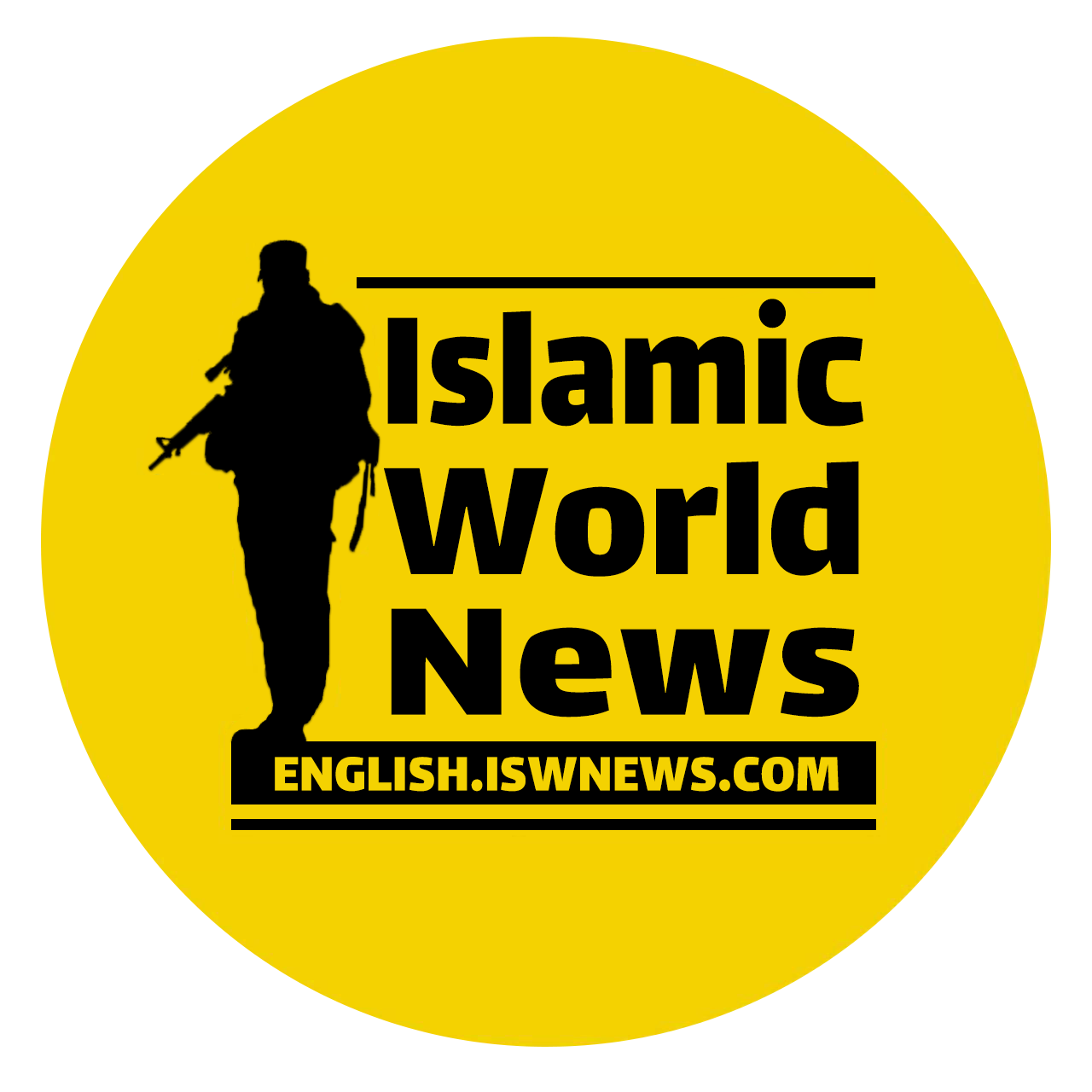
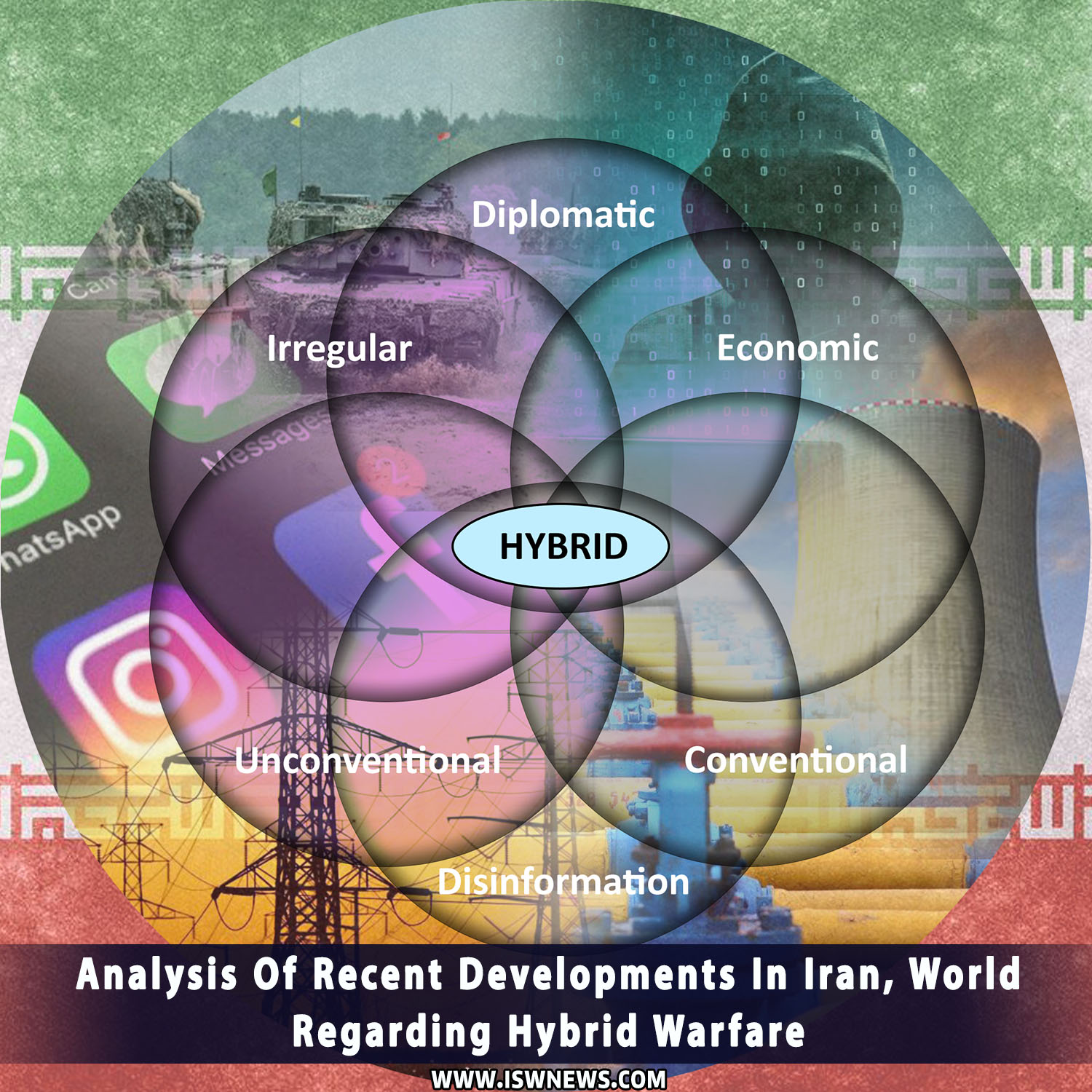
This article is going to analyze the hybrid warfare by the United States and the Israeli regime against the Islamic Republic of Iran as well as the European Union’s anti-Iran sanctions, the recent explosion in Isfahan and the Ukrainians’ warning to Tehran.
In addition to the effect of the European Union’s sanctions on the Iranian economy, the recent unknown blasts and strikes, and different incidents that have happened in Iran, we are witnessing the circulation of manipulated and fake news stories, which seems to be a complete example of hybrid warfare. However, who are designing and implementing the attacks?
In a bid to answer the question; first, let’s review and categorize the recent news reports:
1- The widespread drone strikes and blasts in Isfahan, Tehran, Tabriz, Rasht, Hamadan and Karaj:
The nature of the news story collection had its roots in a combination of numerous fake news and a correct story but based on wrong information. The blast in Isfahan was conducted by the unsuccessful strike of three quadcopters on workshops belonging to the Ministry of Defence and Armed Forces Logistics, and the flights carried out by rescue aircraft in Tehran were portrayed as the flights by army fighter jets in a mission to intercept the unmanned combat aerial vehicles (UCAVs). Regarding to reports of strikes on Tabriz, Hamadan, Mahabad, Baneh and so on, whether there was not blast or strike, or the events in the cities were wrongly attributed to airstrikes. For instance, the burning incident of reeds around Yusefkand Lagoon in outskirts of Mahabad city was described as an Israeli drone attack!
2- Qatari foreign minister’s trip to Iran:
Minister of Foreign Affairs of the Islamic Republic of Iran Hossein Amirabdollahian met with his Qatari counterpart Sheikh Mohammed bin Abdulrahman Al-Thani on January 29, and said in a joint press conference that today we received messages from various signatories to the Joint Comprehensive Plan of Action (JCPOA) via the Qatari foreign minister.
The presentation of a proposal for resuming the nuclear negotiations amid the peak of an ongoing conflict conveys the opposite meaning contrary to de-escalating and resolving of disputes in a peaceful manner. The US’s policy in this pattern of information warfare is a kind of double standard attitude similar to “two-edged scissors.” The Americans push ahead their attacks like the sharp edge of the scissors and at the same time, they offer to hold talks like the slow edge of the scissors.
3- Iran-Russia military collaborations:
The military collaborations and exchange of weaponries between Russia and Iran, experienced a significant acceleration particularly in the past one year following the onset of the Ukraine conflict as well as the West-imposed sanctions on Russia. It is worth mentioning that the Iran-made Shahed 136 drones have succeeded in inflicting heavy blows on the United States and NATO military projects and equipment. The shipment of the Iranian UAVs and ballistic missiles to Russia as well as the reciprocal transfer of the Russian Sukhoi 35 fighter jets and other Russian-made weaponries to Iran will bring about harsh repercussions for the West and Israel. Hence, they will make all-out efforts to prevent, sabotage and delay the exchange of arms between Russia and Iran.
4- Ukraine’s warning to Iran:
The Ukrainian authorities are of the opinion that the recent blast in Isfahan has anything to do with the conflict in the European country. The Ukrainians claim that the Islamic Republic is one of Russia’s military partners, who provides the Russians with lethal weaponries; thus, Iran will not be secure from mysterious strikes. So, Mykhailo Podoliak, an adviser to the president of Ukraine Volodymyr Zelenskyy, wrote on his Twitter account reacting to the blast in Isfahan that “the logic of confrontation is cruel and fatal. The logic holds the culprits and collaborators obstinately accountable. The night time blasts in Iran were conducted against drone and missile manufacturing facilities and oil refineries. Ukraine cautioned you.”
The warning from Ukraine is not taken into account as a threat to the Islamic Republic of Iran; however, it indicates the repercussions of the Europeans’ anti-Iran stances and deeds. Regrettably, the Iranian authorities have not shown any appropriate reaction to the sanctions by the European Union. In the face of such issues, the officials of the Ministry of Foreign Affairs of the Islamic Republic referred to some phone calls with the European officials, calling the anti-Iran moves as superficial or trying to justify the imposition of sanctions with other matters such as the pressures made by of the US on Europe and so on. However, what is being witnessed actually is the intensification of economic pressure on Iran in particular concerning the issues such as selling crude oil and procuring currency for domestic needs.
5- Palestinian attacks on settlements in the occupied territories of Palestine and recent incident at the Republic of Azerbaijan’s embassy in Tehran:
The fresh operations made by the Palestinians in Jerusalem al-Quds have inflicted a heavy blow on the social status of the Zionist regime as well as the credibility of the government of Prime Minister Benjamin Netanyahu. The Israelis opine that the Palestinian resistance groups such as Hamas, Islamic Jihad, and others are fully supported by the Islamic Republic and these groups are operators of Iranians’ strikes on the occupied territories of Palestine. Hence, the Israelis mobilize their agents inside Iran’s soil to conduct proxy attacks. Thanks to Iran’s strong alliances with powerful resistance movements in Lebanon, Palestine, Yemen and other states in the West Asia region, the Islamic Republic enjoys the upper hand in terms of military struggle; so, Tehran is in the position to win any tough confrontation if it reaches the conclusion that it should engage in any military conflict, but the Iranians avoid such struggles because of their economic boundaries. In contradiction to Iran’s military superiority, Israel possesses upper hand in the political and economic fields; moreover, it has recently enhanced its influence in the Caucasus and Central Asian states. The Israeli diplomats as a result of their active and strong diplomacy succeeded in improving the relationship and influence in the Caucasus and Central Asian countries, which is considered as a very grave threat to Iran.
Meanwhile, Iran increased its non-oil exports via the Caucasus region and Central Asian countries in recent years in a bid to compensate the deficiencies of its economy and decrease the effect of West-imposed sanctions. However, the Zionist regime’s influence in that regions can have the opposite effect and limit Iran’s paths to dodge the sanctions. Furthermore, the incident, which occurred in the Republic of Azerbaijan’s embassy in Tehran can negatively affect the International North–South Transport Corridor (INSTC) and the circumstances may be deteriorated by the hasty reaction by Azerbaijani President Ilham Aliyev’s government and it may linger to end up in severing ties and even initiating a conflict with Iran.
All in all, now Iran is under pressure and in a hybrid warfare (political, economic, military, etc.). Any irrelevant news and event, such as a fire in a lagoon or an earthquake, can be placed under Western propaganda and used by Westerners to create chaos and achieve sinister goals against Iran. Such efforts will continue in the future, because this is an effective tactic of Westerners in hybrid warfare to deal with independent nations!

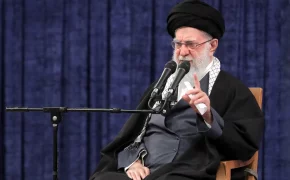
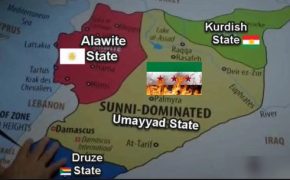
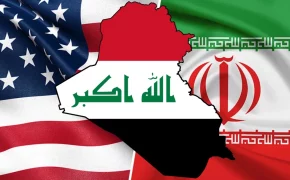
Comment